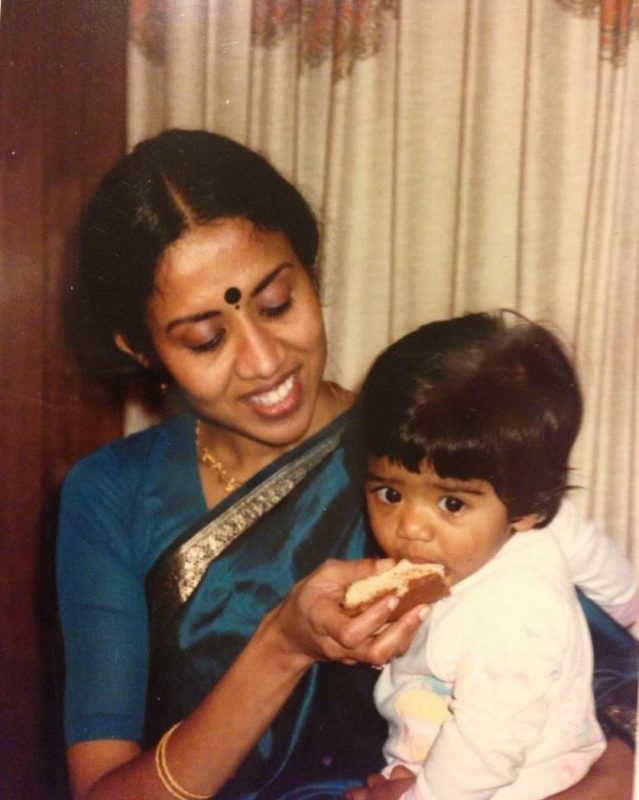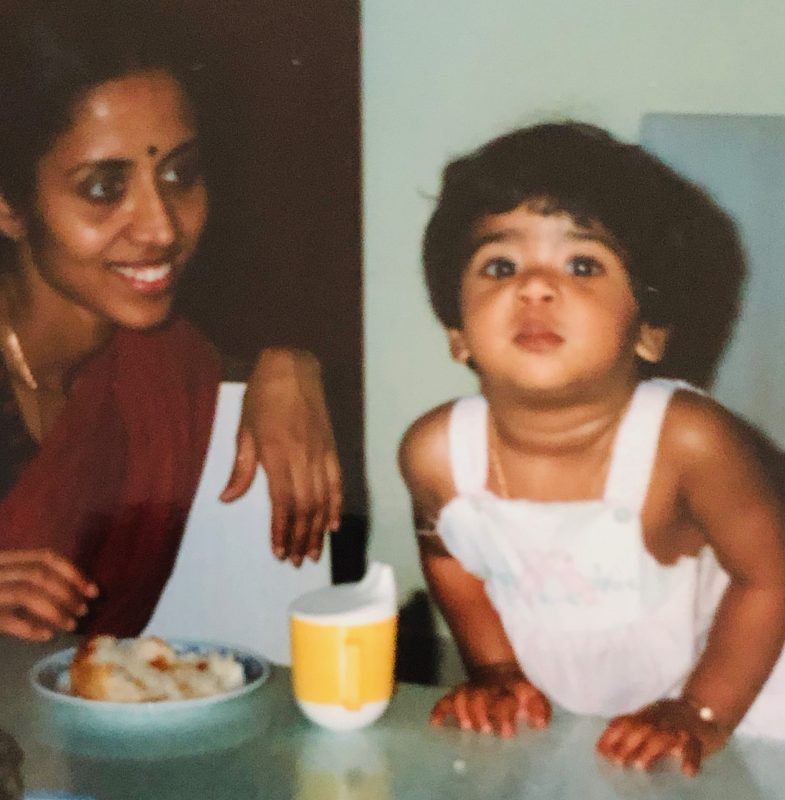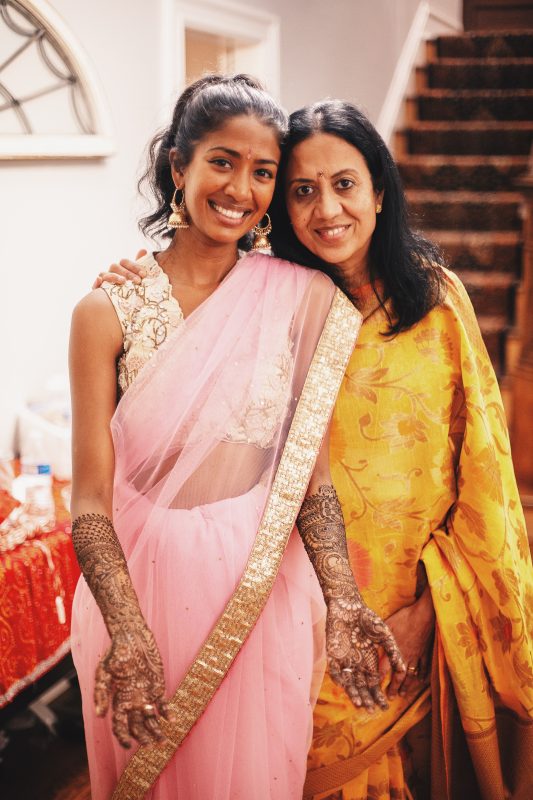Part 1: Of Culinary Identities
Sarah Thomas is using her experience as an Indian American, writer, and former sommelier to create a niche that caters to gastronomical adventures for children through Kalamata’s Kitchen, a world that can be described as a cross between “Dora the Explorer and No Reservations.” For Thomas and her business partner and co-founder Derek Wallace, theirs is a goal to help raise the next generation of thoughtful food adventurers. We spoke with Sarah about what inspired the creation of Kalamata’s Kitchen, her culinary experiences growing up as a first generation American born to Indian immigrants, and how food can inspire kids to be more curious, courageous, compassionate and accepting.
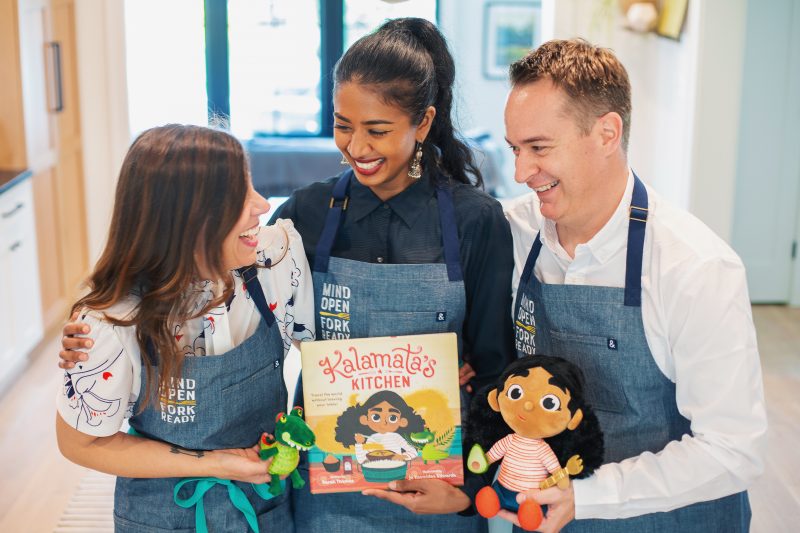
Quench: Tell us more about Kalamata’s Kitchen, how it came into being, and why the name Kalamata?
Sarah Thomas: Derek my business partner and co-founder of Kalamata’s Kitchen, was watching an episode of Chef’s Table on Netflix. He was thinking about all the ways that he had learned about the world through food.Shows like Anthony Bourdain’s, were less about cooking and more about the stories in the background, the histories, and culture. He wanted to share these lessons with his son Henry (who was two or three at the time), but he couldn’t find similar resources for children during his search and wondered why not create it? And on the spot, he came up with the idea for Kalamata’s Kitchen.
Derek then shared his vision with me. What if we created a character that kids identified with food adventures? This was literally the best idea I’d ever heard. Yes, I was the little girl who experienced the world through food, and nothing would make me happier than to try and build this. And very quickly Derek and I saw the opportunity to teach, create, and put good energy into the world through food.
Q: Why food?
ST: The lessons that you can extrapolate from the medium of food are boundless, and so that’s really where it came from. And we’ve been on this mission ever since to use food as the tool, as kind of the handshake into someone else’s life, to really create empathy, because we think that kids who grow up not being afraid of the unfamiliar (and yes, we’re introducing that through the concept of unfamiliar food), then don’t see the unfamiliar as scary, and then you’re much more likely to try it or give it a chance. And that creates empathy, which then creates understanding, and joy in so many ways, and, you know, discovery, experience and adventure.
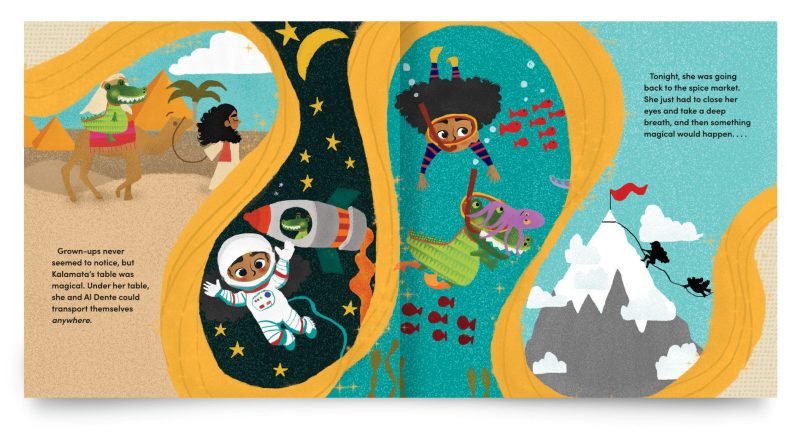
We’re really just trying to teach kids that different is delicious. If it wasn’t so scary for you to try this food that you were scared to try the first time, is it so scary to talk to the person who doesn’t maybe look like you or eat the same food as you? Or are these things as scary as you thought they were? No, because the outcome was delicious the first time you did it. So really, that is what lives at the heart of Kalamata, which is fostering curiosity and giving kids the courage to act on that curiosity, all the while asking them to see the world from the other side of the table.
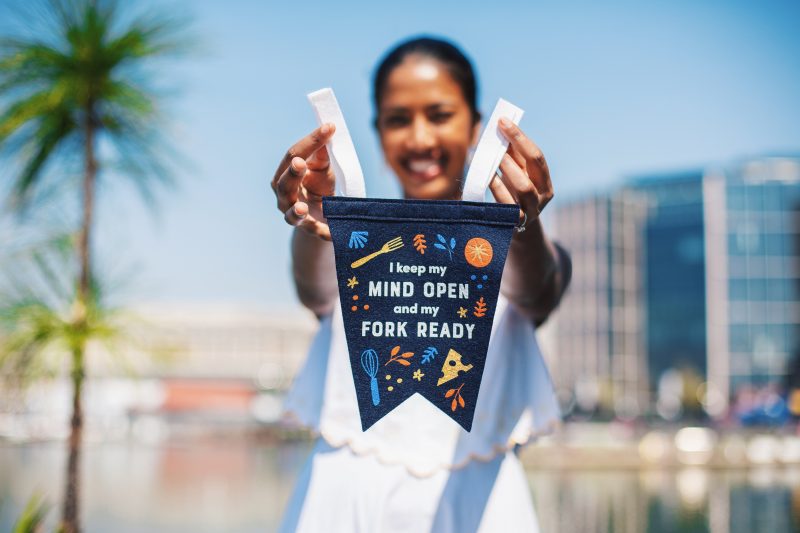
Q: Why the motto “mind open and fork ready”?
ST: That phrase is something that Kalamata and her sidekick Al Dente (an alligator) live by. This idea of a pledge is something that kids love. They like to feel part of a club. When kids are familiar with the pledge they identify with Kalamata’s willingness to live it, and so they do it too. We’ve had parents be like, “you know, my kid didn’t want to try this. But they think about it for a second and go, oh, Kalamata said I had to try it twice, so I’ll do it.”
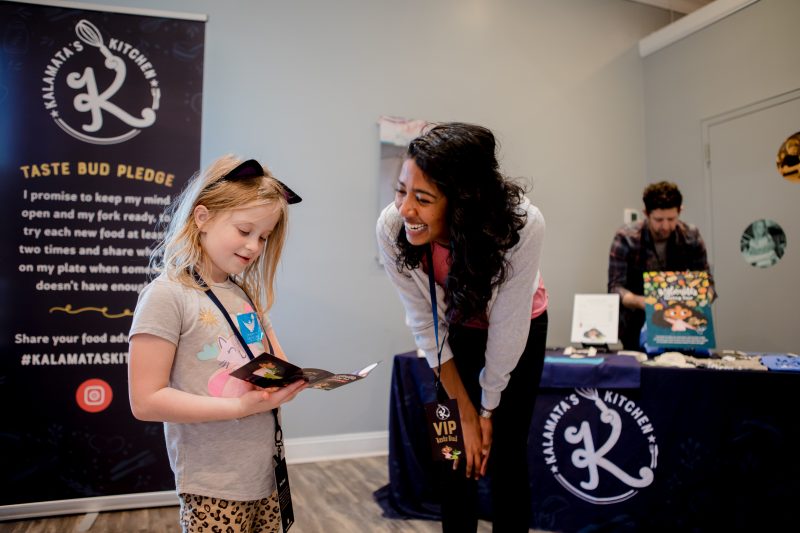
Q: You talk a lot about food memories. In fact, Kalamata’s adventures are centered on such food memories. What is one such memory for you?
ST: Actually, the next book is based off of my food memory (but not a singular one), in which Kalamata is experiencing something that I did as a child. We had an open kitchen and a dining table where I would be reading and doing my homework as my mom cooked in the kitchen. I didn’t cook with my mom but I was always in the kitchen with her. I can remember the building blocks of Kerala food: the pop of mustard seeds, the sizzle of ginger garlic paste, and the smell of curry leaves as soon as they hit oil. Then the rice cooker would go off, so really, it was also the sounds of the kitchen. It’s amazing how I was experiencing that with all of my other senses and I was so enraptured by them which is why they stuck with me for so long.
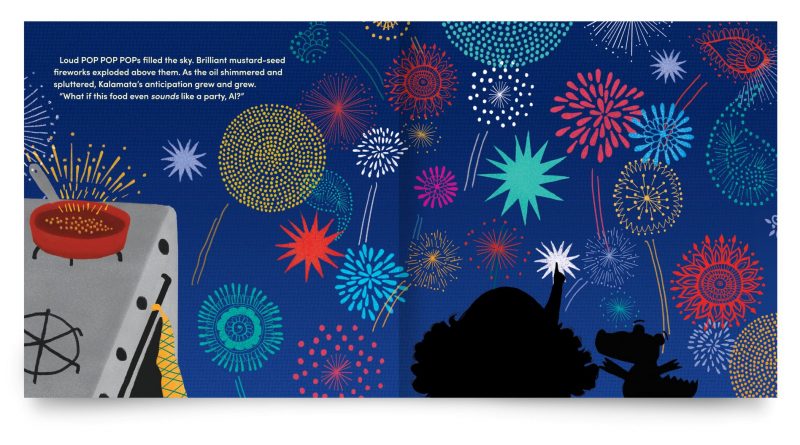
We also ate with our hands, which means I got that tactile immersion into everything that was being prepared in my kitchen and that I was then eating. And I think that immersion, that full sensory immersion is what cements these things into you because when you’re so engrossed in your senses, and how you’re experiencing something, it becomes cemented in your memory.
Q: How would you define your culinary identity?
ST: My culinary identity is certainly one that has evolved over my lifetime. I do remember, our house always smelling like cooking because my mother cooked all the time. Those are my favorite scents, her very traditional Malayali food which is what I still want to eat all the time. My parents are both from Kerala, India. We ate really well, and I think that was such a huge thing for my family because we are all obsessed with food. When we’re eating food, we’re also talking about what we are going to eat next. We’re just that kind of family.
My mom cooked a variety of things, too. I was definitely spoiled in a way I didn’t quite recognize when I was younger, but I do now. I didn’t love it when I was a child. In fact, you know, many times felt ashamed of it, which was very conflicting because I loved the food and wanted to show it off. But growing up in rural Pennsylvania, it was not something that any of my friends wanted to eat, and as a result, it was not something that I wanted to take to school. Basically, you’re trying to fit in. And when someone shuts down the thing you love so much, you put that away for a long time, and so I did. I was always toggling between my love for my own food, and pretty much everything else too. And I think that’s a common first-generation experience. I can look back now and say I was so lucky to be surrounded by those scents and smells, and they’ve made my formative memories, and it’s my favorite food!
The other part of that is I was trying to fit in with the white American kids that I grew up with, loving what I ate at home, but also not feeling like I really had ownership over it when we went to India to visit my family every summer. I didn’t fit in there either. It was always very obvious when I was in India that I was American. But when I was in America, people were like, “oh, you’re Indian, like what do you know about this?” And you know, you occupy this sort of liminal space of going well, I don’t really know what my identity is.
I don’t think I always saw that as a positive thing when I was younger, and certainly as I’ve gotten older, I think I just realized that I grew up really caring about the identities that other people were imposing on me. Now my reaction is actually I get to decide what my actual culinary identity is. There are pieces of it that are very Indian, and there are pieces of it that are not. What I’m better now at understanding is that I’m actually more in control of that narrative than I ever thought I was. And as a result, I’m more vocal in rejecting when somebody imposes what they think I should be talking about or eating or describing. I’m like, no, I’m going to talk about what I want to talk about. You can’t define my Indian-ness, and it is not less Indian, because you think I’m really American, and my American-ness is not less American, because you think I should only be talking about Indian food.
Kalamata’s Kitchen is being released on July 20, 2021. The book can be ordered through Random House or consider purchasing from your local independent book shop.
To keep up with Kalamata’s adventures and more, visit www.kalamataskitchen.com and follow @Kalamataskitchen and Sarah Thomas on Instagram.
Photos in this article were supplied by Sarah Thomas

